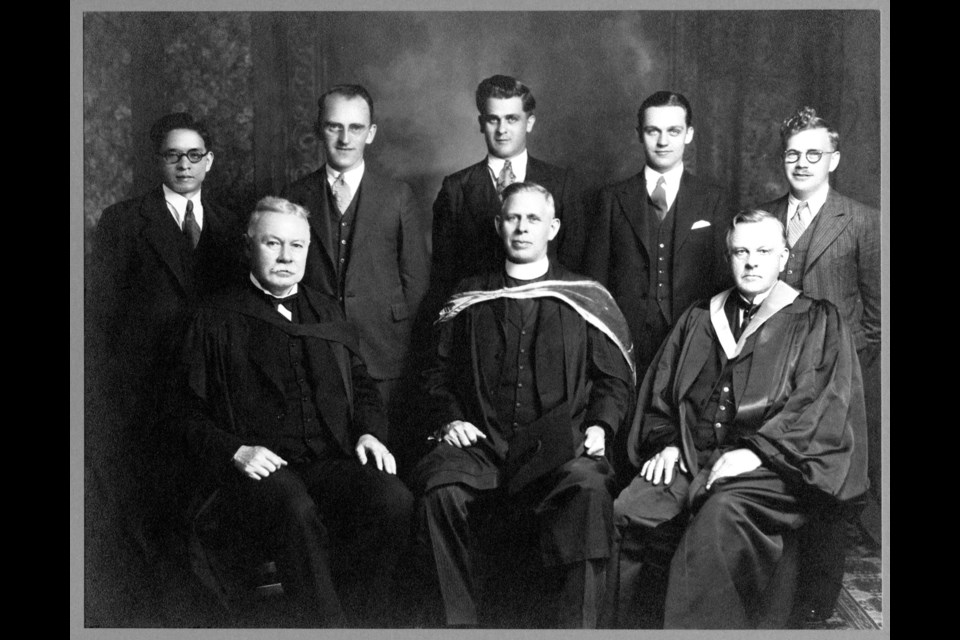Nomoto: A BC tragedy, a new documentary premiering at the New West Film Festival 2022 by filmmaker Chad Townsend, tells the story of Kyuichi Nomoto, a Japanese-Canadian man whose internment during the 1940s led to his untimely death.
Ever since the first Japanese immigrant arrived in New Westminster in 1877, Japanese-Canadians have suffered the pain of racism. After Japan's bombing of Pearl Harbour in 1941, people of Japanese descent were sent to internment camps in the Interior of B.C. or exiled.
Nomoto was one of the first Japanese-Canadians to graduate from the University of British Columbia. After being ordained in New Westminster, he became a well-respected United Church minister in the Steveston community, where he lived with his wife before being sent to an internment camp in New Denver, B.C., during the Second World War.
The documentary follows his mental deterioration in New Denver before he was sent for treatment to Essondale Mental (Riverview) Hospital in Coquitlam, where he died.
Townsend, a first-time filmmaker, said his purchase of a property in New Denver during a retreat trip was the starting point on his journey toward discovering the story of Nomoto.
When he moved to Vancouver in 2019, he went to the United Church archives in Gastown to look for photographs of the building. Instead, archivist Blair Galston piqued his interest by giving him a box of letters between Nomoto and his boss. .
"You could tell through the letters that there was frustration which became desperation and then clearly became some mental illness that had creeped into this man's life," Townsend said. "In the letters, you can feel the frustration — the trauma his community faced — and they tell us the story of the whole community of 22,000 others who were uprooted from coastal B.C. sent to the Interior as part of this internment period."
Townsend said that although the story is decades old, the trauma passed on by survivors of the Japanese internment camps is bound to have intergenerational effects. He said the 23-minute film is a reminder to Canadians not to repeat mistakes of our predecessors, and to acknowledge the discrimination faced by people of Japanese-Canadian descent.
First-time filmmaker
Given the decades that have elapsed since Nomoto's death in 1944, Townsend said, it was a challenge to find interviewees for the documentary. Most subjects interviewed are archivists or surviving members of Japanese-Canadians families who were interned, he explained.
"There have been films made about other internees who actually survived unlike Reverend Nomoto," he said. "But they've mostly been about Japanese-Canadians who have become famous since and overcame the odds" such as David Suzuki, architect Raymond Moriyama and writer Joy Kagawa.
"All those people were children at the time of internment, but it wouldn't have been anyone who knew Nomoto, so my interviews helped with the context of what was happening at that time, trying to explain the emotions they would have been going through if they'd heard from their parents or their grandparents. It's tough because a lot of those parents and grandparents didn't want to talk about it because of too-bad memories."
The first-time journey into storytelling and discovery had its ups and downs, according to Townsend. Finding archival footage from the era was a challenge, he explained, due to the confiscation of cameras from Japanese Canadians during the time of internment camps.
With the help of the Japanese-Canadian community, especially from archivist Linda Kawamoto Reid and collections manager Lisa Uyeda at the Nikkei National Museum & Cultural Centre, Townsend was able to tell the story, he said.
The documentary, Nomoto: A BC tragedy, will be screened in New West Film Festival 2022 on Sunday, Oct. 23 at 1 p.m.
The NWFF 2022 will also screen other local and international films from Oct. 21 to 23. Tickets can be purchased here.




